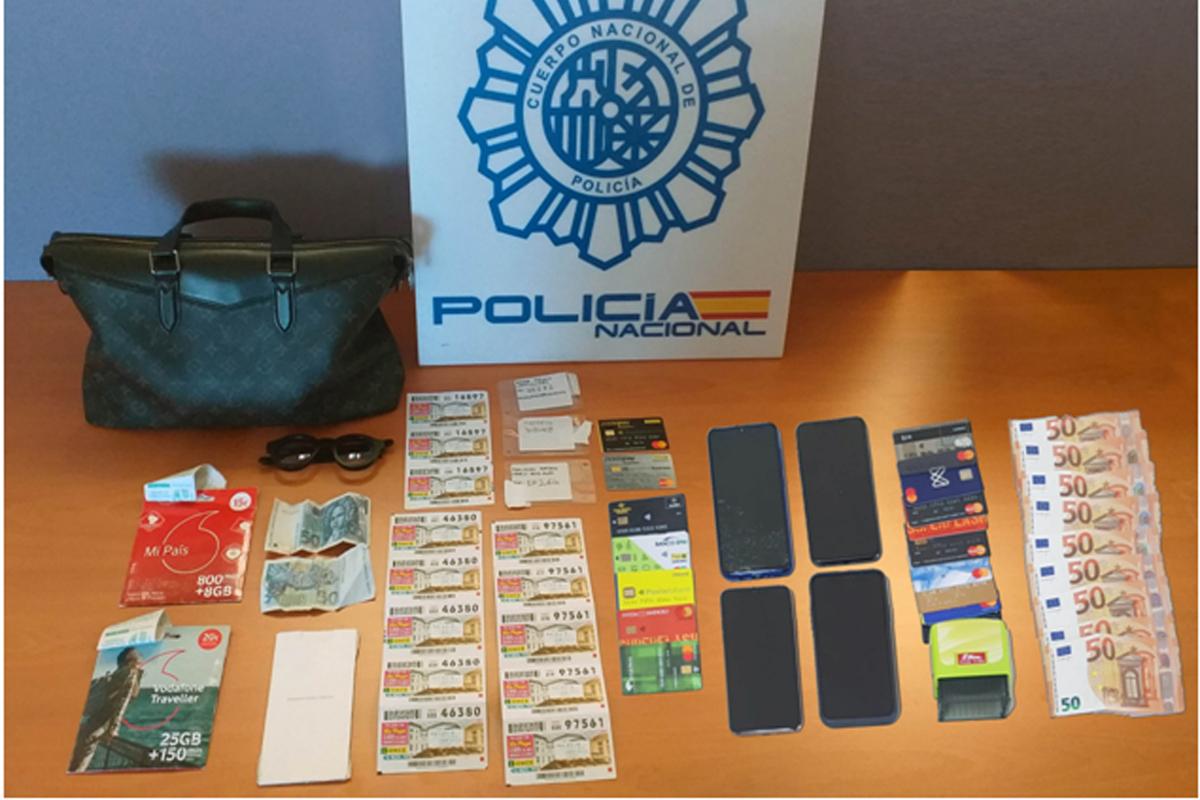One more day of waiting could have cost 500,000 euros less for the victim. And 500,000 euros more for Prince Roberto's company. Specifically, the front company of Roberto, Graciano and Valentino, three Italians of about 45 years specialized for more than 20 in scams of all kinds.
The National Police have arrested them precisely when they were about to perpetrate their latest scam: collecting a forged check of half a million that had been scammed by victims in La Coruña. But before we get here, let's go back a bit: a few months ago, the first information began to arrive at the Technological Research Unit (ITU) about counterfeit checks cashed at banks. The criminals had already earned more than 800,000 euros.
When the investigation, called Operation Empire, began, it was discovered that this had been going on for a year and a half in Spain, and it was concluded that it was undoubtedly an organized and very professional group. The scammers had a main business, which consisted of posing as intermediaries of wealthy buyers of luxury homes and defrauding the sellers of those homes. There are few places in Spain where there was no luxury home for sale and these scammers have not acted.
To formalize the deception, after posing as intermediaries, dressed impeccably in branded clothing, wearing expensive watches and with a large display of media, they came to sign a contract with the victim where they agreed to a large commission. To build more confidence they used social engineering with great mastery. For example, the check would only be cashed in the event that the sale will be formalized, and the last act of the theater took place in a notary, to give it more credibility.
But the criminals photographed the check that was deposited in the notary's office by the victim, and in a very short time they had a perfect counterfeit ready that they collected at the bank. Even the reliefs on the check paper were flawless. As soon as the money was in their possession, they called the victim and canceled the contract, so that she returned to the notary to collect her check.
On the first flight
Of course, it was a matter of very little time that the con man realized that his bank funds had been stolen, but it was also enough time for the detainees to return to Italy on the first flight. And the first flight is not a saying, because they always had several plane tickets bought to come to Spain or leave, although most were left unused.
In fact, the second activity that detainees were engaged in, apart from real estate scams, was to use third-party credit cards to live like kings. They had rooms in five-star hotels reserved and paid for large seasons, although most of the time they didn't even show up at the hotel. And of course they were not deprived of any whim.
According to the investigators of the Central Brigade against Computer Fraud, who were in charge of the case, Roberto, Graciano and Valentino lived in Milan, although they had made Spain the scene of their scams. Surely it was because in his native country they already had a history of extortion, threats, kidnappings, forgery of documents and Internet scams, among others.
A whole life dedicated to crime, which makes investigators think that there may be links to Italian organized crime. In Spain, those arrested had established their safe house in Valladolid, where they had a preference for cashing forged checks and had also created a legal company to use it as a cover in their real estate scams.
Since they had spent a lifetime dedicated to this, the scammers had many ways to mislead the police. The main one, along with multiple airline tickets, was the use of forged identities that were also exchanged between them. It was very difficult to keep track of them on the planes, because you never knew what they were going to catch and also the names of the passengers did not match the faces of all of them.
But in the end they were able to identify themselves, and the ITU agents had to run to the Barajas airport because Valentino was arriving from Italy, and such were the haste of those who were watching him in Madrid, that they could not get on the next plane that the suspect took to La Coruña. But there were other police officers waiting for him who followed him to the notary office mentioned at the beginning of this article.
As soon as he got out they arrested him. He had just signed a contract to take a commission of 500,000 euros, in exchange for a luxury house that, like the previous ones, he was not planning to sell either. One more day and surely he would have had the check falsified by his victims deposited in the notary's office. Roberto was also arrested, and the investigating judge sent a Euro-order to Italy to arrest his accomplice Graciano, who fell two days later. Now they sleep in jail.
In accordance with the criteria of The Trust Project
Know more- Spain
- La Coruña
- Italy
- Madrid
- National Police
- Internet
MadridA 16-year-old hacker arrested for various cyberattacks on health, educational and business applications
CoronavirusMónica Oltra: "If measures had been taken in Madrid before, the evolution would have been different"
Teldat Business: Spanish technology from a Boston bus to the AVE to Mecca

